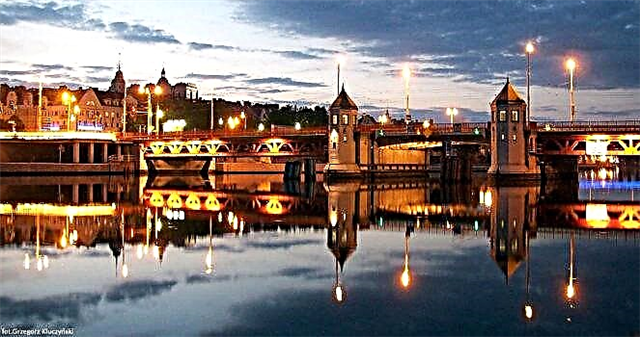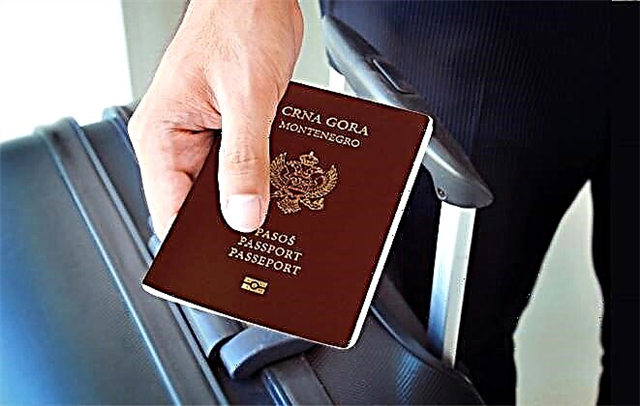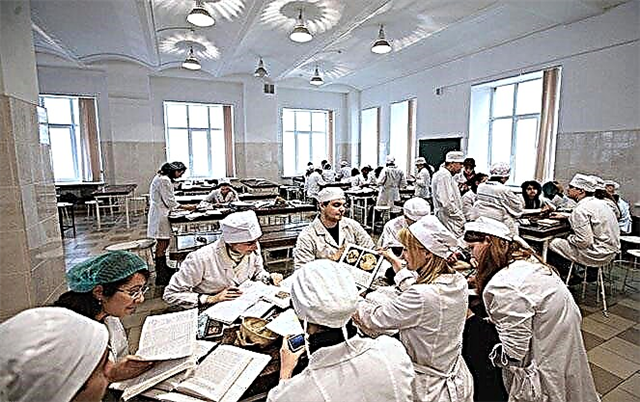The Czech Republic is one of the first states in Central Europe, where the art of healing and training doctors began to develop in the Middle Ages. Nowadays, the medicine of this country, which is based on the latest achievements in the field of healthcare, is recognized and appreciated all over the world. If you dream of a medical degree and a high-paying job abroad, it is most convenient to get a medical education in the Czech Republic.

Features of European medicine
Getting a medical education is considered one of the most difficult types of education today. The training of doctors lasts much longer than specialists in other fields, moreover, they have to master a huge amount of educational material.
Getting a medical education in the Czech Republic has quite a few advantages. Medical training programs in local universities differ significantly from the programs of post-Soviet educational institutions and correspond to world standards. Students get acquainted with the advanced achievements of world medicine, the use of the latest diagnostic methods, study international protocols for the treatment of various diseases.
The Czech medical diploma is recognized not only in Europe, but also in the USA, Canada and Australia.
After completing their studies, graduates open up employment prospects not only in the Czech Republic, but also in other countries of the world.
Since studying at a medical university and internship is a long process, during this time a student can not only obtain permanent residence in the Czech Republic (issued after 5 years of residence in the country), but also shortly after graduation and admission to independent work, apply for Czech citizenship.
The salaries of doctors here are higher than those of engineers and other qualified specialists. The minimum wage for a doctor in the Czech Republic is 25 thousand kroons per month (950 €), but real earnings in the medical field are much higher.
For example:
- a general practitioner receives about 1350 €;
- family doctor - 2300-3460 €;
- dentist - 1150-3460 €;
- surgeon - from 1200 €;
- cardiologist - 1540-2150 €;
- ophthalmologist - more than 1540 €;
- pediatrician - about 3000 €.
Doctors with diplomas obtained in Czech universities are in great demand in developed countries, and in recent years this has led to the fact that Czech doctors massively move to live and work in Germany, Austria, Great Britain and the Scandinavian states, where doctors are paid more. That is why Czech clinics are eagerly hiring doctors and nurses from Eastern Europe and Asia.
According to Czech law, an officially employed foreign doctor receives the same salary as local specialists.
The clinic pays for medical and pension insurance for foreign employees, provides paid leave (4-6 weeks) and other social benefits. Foreign doctors working in health resorts or small towns where the medical shortage is especially acute are often provided with free housing, food vouchers, additional payments for professional development and sports.
Additional training is provided for doctors of specialties in short supply at the expense of a medical institution. In addition, foreign doctors are allowed to have private practice in the Czech Republic.
However, doctors and nurses with diplomas obtained in post-Soviet countries can work in the Czech Republic only if the educational document is nostrified. This is a complex, long and multi-stage procedure that involves an in-depth study of the Czech language (up to a level that allows a foreign doctor to communicate freely with patients), passing written and oral qualification exams in Czech, practice in a clinic under the supervision of a curator.
Where can you study medicine in the Czech Republic
There are no specialized medical universities in the Czech Republic - separate faculties of universities are engaged in the training of doctors here. In particular, there are faculties in which medicine is studied in five large universities in the Czech Republic.
Charles University has the largest number of medical faculties: three of them are located in Prague, and two more of them are located in Plzen and Hradec Králové.
In addition, the Masaryk University in Brno, the Palacky University in Olomouc, the University of Ostrava and the University of Defense (with a specialization in military medicine) can be trained as a doctor or health specialist.
Medical and non-medical specialties
The classification of specialties related to medicine in the Czech Republic is somewhat different than in the post-Soviet states. In accordance with international practice, they are divided into medical and non-medical.
The list of non-medical specialties includes many of those that in Russia and other states of the former USSR are referred to as the medical field. This feature must be taken into account when choosing a profession that you want to master at a Czech university.
In particular, non-medical specialties include: nurses, obstetricians, ambulance paramedics, dental technicians, laboratory assistants, specialists in the field of radiology, optics, orthopedists, physiotherapists, nutritionists, occupational therapists, psychologists, speech therapists, massage therapists, medical and social workers.
Medical doctors include general therapists, specialists (surgeons, cardiologists, neuropathologists, pulmonologists, etc.), as well as dentists. Pediatrics in the Czech Republic is studied in the section of general medicine.
Choice of the Faculty of Medicine
To choose a university in which you can get a medical education that meets your needs and wishes, you need to carefully study the list of specialties offered by certain faculties, the conditions of the competition and exams that you need to pass.
- The 2nd and 3rd medical faculties of Charles University have the highest ratings. They are known for their integrative education system, which allows future doctors to approach each diagnosis in a comprehensive manner and analyze the patient's condition in terms of various physiological aspects.
- The next most prestigious is the Faculty of Medicine of the Palacky University in Olomouc. The majority of foreign students are here. When training future surgeons, telemedicine is actively used - live broadcasts from operating rooms.
- The 1st Faculty of Medicine at Charles University is known for its high-quality training of dentists and a high level of scientific research. In addition, it offers a wide range of non-medical specialties: narcology, physiotherapy, forensic medicine.
- The Faculty of Medicine of Masaryk University has been attracting students to research work from the very first year. Here you can choose a program with advanced capabilities specifically in terms of scientific training.
- The Faculty of Medicine in Ostrava was opened relatively recently. In addition to general medicine doctors, physiotherapists, nutritionists, rescue service physicians, and resuscitators are trained here.
What you need to get a medical education
First you need to decide on the language in which you will be trained. Foreign students can study in Czech for free, in English for a fee. At the Faculty of Medicine in Ostrava, the curriculum can also be taught in Italian, but also for a fee.
For Russian applicants who do not have significant funds, free education looks more attractive. The Czech language belongs to the Slavic group, so there are no special difficulties in learning it.
To study at the Faculty of Medicine, you need to be fluent in the Czech language at a level not lower than B2, as well as in specialized terminology. And for admission to the medical faculties of Charles University from 2021, knowledge of the Czech language is required at a level not lower than C1.
Applicants must prove their knowledge of the language by passing the exams to obtain a state linguistic certificate.
As practice shows, it is practically impossible to learn the Czech language at the proper level, being outside the language environment. Therefore, if you are thinking about how to enter a medical institute in the Czech Republic on a free basis, the first stage of preparation should be studying in a language or preparatory course.
At the Prague Education Center, you can not only learn Czech, but also study specialized subjects that you will need to take in exams. For applicants of medical faculties, special programs have been developed that take into account all the requirements for them.
The center offers annual training courses:
- SMART (600 hours, 3910 €),
- STANDARD (910 hours, 4760 €),
- COMPLEX (1120 hours, 5370 €).
There is also an intensive semester course that runs from January to June. It includes 477 academic hours of studying the Czech language and up to 150 hours of specialized subjects of choice. The cost of a language course is 2910 euros, the program for studying individual subjects is 420-480 euros.
If you want to study in English, you must submit an international TOEFL or IELTS language certificate to the admissions office.
Another important point is the nostrification of the educational document. If you graduated from a school or college in a country that is not part of the EU, your certificate or diploma must go through an official confirmation procedure in the Czech Republic.
Nostrification takes 2-3 months. It is possible to deal with the confirmation of educational documents in parallel with training in language courses.
So, for admission to a Czech university you need:
- choose a university, faculty and specialization (general medicine, dentistry or health care specialties);
- choose the language of instruction:
- to study in Czech, you must enroll in language courses in the Czech Republic, complete them and pass an exam to obtain a state language certificate;
- to study in English, you must pass an exam and receive an international language certificate TOEFL or IELTS;
- nostrify a diploma of education;
- apply for admission to the university and pay the state fee;
- pass entrance exams;
- if you are accepted to study at a university, apply for a long-term student visa.
Features of the learning process
In the Czech Republic, the Bologna system operates, according to which the training of specialists of three levels is provided: bachelor's, master's and doctoral studies. Bachelor's studies last 3-4 years, master's programs - 2 years, doctoral studies - 3-4 years, depending on the direction.
To assess the volume of the studied disciplines, a system of credits is used. For each semester, the student needs to collect 30 credits. Thus, the passage of the bachelor's program is estimated at 180-240 credits, the master's program - 120 credits.

However, in medical faculties, such a system is used only for specialties that are non-medical. Moreover, for some of them (nurse, nurse-midwife, paramedic of the rescue service, assistant laboratory assistant), only a 3-year undergraduate program is provided.
For others (physiotherapy, narcology, optometry) there is a bachelor's degree (3 years) and a master's degree (2 years). After receiving a diploma, graduates can immediately start work.
In the medical specialties (general medicine and dentistry), the curriculum is structured somewhat differently. In particular, a bachelor's degree in these specialties is not provided. Education continues without interruption for 6 years (general medicine) or 5 years (dentistry).
At the same time, the credit system operates: during the course of study, the student must collect at least 300 credits in 5 years or 360 credits in 6 years.
- In the first two courses, future doctors study general subjects: anatomy, medical biology, biophysics and biochemistry, principles of patient care, first aid, and the basics of physical culture.
- In the third year, normal and pathological physiology, the basics of pediatrics and clinical medicine, microbiology and immunology are added.
- In the fourth year, the mastery of surgery, clinical genetics, epidemiology, pharmacology, internal medicine and traumatology begins.
- The last two years of study are devoted to the study of diseases of various organ systems, anesthesiology and the principles of resuscitation, oncology, urology, gynecology and various aspects of practical medicine.
Much attention is paid to practice - it starts with 2-3 courses and in the last year reaches 50% of the study time.
But even after successfully mastering the curriculum, the graduate is not immediately allowed to work. He must undergo an internship (1 or 2 years) under the supervision of experienced doctors and pass another state exam. And only after that he gets the right to treat patients on his own. Future doctors master a narrow specialization in internship and postgraduate training programs.
Medical graduates receive a diploma, master's degree and MUDr title. (medicinae universae doctor) - general practitioner. Dentists receive the MDDr title. (medicinae dentalis doctor).
After receiving the diploma, the young specialist must register in the state register of doctors.
For those wishing to engage in scientific work in the medical field, doctoral studies are available at Czech universities. Duration of study for doctoral students is 4 years.
One of the requirements for admission to doctoral studies is proficiency in English at a level that allows you to speak at international conferences and work with English-language literature. When studying in doctoral studies, the credit system is not used, the assessment is carried out according to the level of implementation of the individual scientific plan.
The best medical universities in the Czech Republic
Medical faculties at all universities in the Czech Republic provide high-quality training for European-level specialists. Moreover, each educational institution has its own characteristics associated with training programs, teaching methods and specialization.
Charles University in Prague
Charles University is the largest and most prestigious university in the Czech Republic. It has 5 medical faculties (3 in Prague and 2 in the periphery), as well as a faculty of pharmacy. In addition, at the Faculty of Physical Culture and Sports, you can get a specialty in sports medicine.

The requirements for admission to the medical faculties of this university are the highest.
In particular, in order to be able to study for free, foreign applicants must speak Czech at a level not lower than C1 (for other universities, B2 is enough). The competition is high, and it is quite difficult for a foreigner to become a student.
1st Faculty of Medicine
It is the largest medical faculty in the Czech Republic, with over 700 students annually. About 800 foreigners from 50 countries of the world study here. For foreign students in the first two courses, there is a compulsory program for studying the Czech language (general vocabulary and medical terminology). There is a paid training program in English
The curriculum includes compulsory and optional subjects, which should make up no more than 15% of the total number of disciplines studied.
Model assignments for entrance exams in physics, chemistry and biology can be ordered on the faculty website. Upon receipt at the dean's office, their cost will be 300 CZK (11.6 €), when sent within the territory of the Czech Republic - 380 CZK (14.7 €), when sent abroad - 500 CZK (19.36 €).Tasks for passing the addictology exam, respectively, 100-170 kroons (3.9-6.6 €).
| Directions of study | Speciality | Bachelor, years | Master, years | Tuition fees in English language per year | Entrance exams | Peculiarities |
|---|---|---|---|---|---|---|
| Medicine | General medicine | - | 6 | 13 937 € | 1st round. Written tests: physics, biology, chemistry | Day training No more than 3 electives per semester |
| Dentistry | Dentistry | - | 5 | 13 937 € | 1st round. Written tests: physics, biology, chemistry | Day training |
| Health protection | Addictology (narcology) | 3 | 2 | Czech only | 1st round. Biology Written Test | Day training |
| Physiotherapy Ergotherapy Dietetics Resuscitator | 3 3 3 3 | - 2 2 2 | 1st round. Written tests: physics, biology, chemistry | |||
| Obstetrics | Nurse midwife | 3 | - | Czech only | 1st round. Written tests: physics, biology, chemistry | Full-time, combined education |
2nd Faculty of Medicine
The faculty offers a course in general medicine with an expanded pediatric specialization program. If you want to become a pediatrician, this is the best place to apply. In addition, physiotherapy can be studied in depth at this faculty - at the undergraduate and master's program.
The faculty is relatively small - about 230 students are admitted to it every year. Known for strict rules for admission examinations and an individual approach to teaching each student, so the dropout rate is very low.
About 200 foreigners study at the faculty. The main base for training and practice is the leading Czech clinic "Motol".
The administration of the faculty takes care of the psychological state of students (both compatriots and foreigners) and conducts free anti-stress consultations for them, including in English.
The faculty publishes collections of standard assignments for applicants.
| Directions of study | Speciality | Bachelor, years | Master, years | Tuition fees in English language per year | Entrance exams | Peculiarities |
|---|---|---|---|---|---|---|
| Medicine | General medicine | - | 6 | 12 775 € | Round 1 - written tests in biology, physics, chemistry and prerequisites for medical work. Round 2 - oral interview | Day training. Advanced specialization in pediatrics |
| Health protection | Physiotherapy | 3 | 2 | Czech only | Round 1 - written tests in biology, physics, chemistry and prerequisites for medical work. Round 2 - oral interview | Day training. Only bachelors of physiotherapy are admitted to the master's program |
| Patient care | General nurse | 3 | - | Czech only | Round 1 - written tests in biology, physics, chemistry and prerequisites for medical work. Round 2 - oral interview | Day training. The last year of study includes only practice |
3rd Faculty of Medicine
The 3rd Faculty of Medicine of Charles University is included in the list of medical educational institutions of the World Health Organization and Euroskills (Union of European Medical Faculties), the curriculum is accredited by the US Department of Education. Annually, up to 250 students are admitted to the first course, of which up to 65 people are enrolled in a paid program with teaching in English.
The faculty uses an innovative teaching methodology, which is aimed at developing the skills to integrate various areas of knowledge and make independent decisions.
The training course is divided into cycles and modules.
The purpose of the entrance exams is to select applicants who have a high learning ability and analytical thinking.
The faculty does not publish manuals for applicants with typical tasks for entrance tests. Examples of test questions can be found on the website.
| Directions of study | Speciality | Bachelor, years | Master, years | Tuition fees in English language per year | Entrance exams | Peculiarities |
|---|---|---|---|---|---|---|
| Medicine | General medicine | - | 6 | 12 775 € | Round 1 - written tests in biology, chemistry and physics / mathematics (optional). Multiple choice test (30 questions per subject). Round 2 - an interview with the interpretation of an unfamiliar section of a scientific article | Day training. The training course is divided into cycles and modules. Practice from the first year of study. |
| Health protection | Physiotherapy (specialization in rehabilitation) | 3 | - | Czech only | Written test in biology and physics | Day training |
| Health protection | Dentist-hygienist | 3 | - | Czech only | Biology and Chemistry Test | Day training |
| Health protection | Public health | 3 | - | Czech only | Test in biology, chemistry, physics and somatology (basic anatomy) | Full-time, combined education |
| Patient care | General nurse | 3 | - | Czech only | Basic Human Biology Test | Full-time, combined education |
Faculty of Medicine in Hradec Králové
The specialty "General Medicine" annually admits 300-320 students. In addition, the faculty has a long tradition of training dentists and qualified nurses.

Examples of entrance tests and the literature recommended for preparation are given on the faculty website.
| Directions of study | Speciality | Bachelor, years | Master, years | Tuition fees in English language per year | Entrance exams | Peculiarities |
|---|---|---|---|---|---|---|
| Medicine | General medicine | - | 6 | 11 990 € | Written tests: physics, biology, chemistry, somatology (with Latin terms) | Day training |
| Dentistry | Dentistry | - | 5 | 13 150 € | Written tests: physics, biology, chemistry, somatology (with Latin terms) | Day training |
| Patient care | General nurse | 3 | - | Czech only | Written test in biology, somatology and chemistry | Combined training. The student can work part-time at the faculty clinic. |
Faculty of Medicine in Pilsen
There are no bachelor's programs at the faculty, there is only a master's degree in two specialties: general medicine and dentistry. Every year, the faculty accepts up to 200 students for the first year, 20% of whom are foreigners.
The faculty offers applicants an electronic preparatory course that includes all model questions in biology, physics and chemistry. The course participant can test their knowledge in the form of a test that follows the structure of the actual introductory test assignment. The course is available from November 1 on the faculty website, cost 4000 CZK (155 €).
Applicants residing in the Czech Republic can attend a day preparatory course (6000 CZK or 232 €) or take a combined course (day classes + e-course) at a price of 7000 CZK or 270 € (http://www.lfp.cuni.cz/clanek /3806-elektronicky-pripravny-kurz.html).
| Directions of study | Speciality | Bachelor the years | master the years | Tuition fees in English language per year | Entrance exams | Peculiarities |
|---|---|---|---|---|---|---|
| Medicine | General medicine | - | 6 | 11 600 € | Written tests: physics, biology, chemistry. | Day training |
| Dentistry | Dentistry | - | 5 | 13 150 € | Written tests: physics, biology, chemistry. | Day training |
Masaryk University in Brno
It is the second largest medical faculty in the Czech Republic in terms of the number of students. Annually up to 650 people are enrolled in the first course, of which about 15% are foreigners. The faculty includes 12 theoretical institutes, 54 clinics and 8 departments.

Applicants are offered the study of general medicine, dentistry, as well as a wide range of non-medical specialties, including the training of paramedics for rescue services. You can start to study in undergraduate programs, and continue your studies in a magistracy.
In the 2019/20 academic year, the faculty plans to expand the list of specialties that are taught in English.
Model questions for the entrance exams can be purchased at the Faculty's bookstore at Brno, Campus Bohunice, Kamenica 5. The cost of the grant is 100 CZK (3.9 €). It can also be ordered via email addresses: [email protected] and [email protected] and received by mail.
For admission to the magistracy in the specialty of health care, an exam in the specialty is taken within the framework of the profile bachelor's program. The list of examination topics for each specialty is presented on the faculty website.
| Directions of study | Speciality | Bachelor the years | master the years | Tuition fees in English language per year | Entrance exams | Peculiarities |
|---|---|---|---|---|---|---|
| Medicine | General medicine | - | 6 | 10 769 € | Written tests: physics, biology, chemistry, somatology | Day training. Students are involved in scientific work. |
| Dentistry | Dentistry | - | 5 | 12 692 € | Written tests: physics, biology, chemistry, somatology | Day training |
| Patient care | General nurse | 3 | - | Only in Czech. From 2019/20 also in English. language. | Written tests: physics, biology, chemistry. | Full-time, combined education. |
| Obstetrics | Nurse midwife | 3 | - | Czech only | Written tests: physics, biology, chemistry. | Day training |
| Health protection | Physiotherapy | 3 | 2 | 7,500 € (Master's degree) | Undergraduate Written tests in physics, biology, chemistry. Master's degree | Day training |
| Dietetics Optics and Optometry Orthopedics Assistant- radiologist Assistant- laboratory assistant Bioanals teak Dentist hygienist | 3 3 3 3 3 - 3 | 2 2 - - - 2 - | Only in Czech. 2019/20 in eng. language: nutritionist (master), assistant radiologist (bachelor) | |||
| Health protection | Resuscitator | - | 2 | Czech only | You must have a bachelor's degree in general nursing. An exam in the specialty is taken | Full-time, combined education |
| Health protection | Rescue paramedic | 3 | - | Czech only | Round 1 - testing of physical data: pull-up, motor test (Jacíkův motorický test) and running (1500 m for 6 minutes for men, 800 m for 3.4 minutes for women). Round 2 - written test in biology and physics | Day training. Before or during the period of study, you need to obtain a driver's license of category B, a DRNR certificate (driver of transport for the transport of the sick and wounded). |
Palacky University in Olomouc
One of the oldest universities in the Czech Republic. The Faculty of Medicine has two departments. One is studying general medicine and dentistry, the second is the specialties of the health sector. Up to 250 students are admitted annually to general medicine with training in the Czech language, up to 100 students for dentistry. For programs with teaching in English: general medicine - 70-80 students, dentistry - 15-20 students.

Study programs are certified in the USA and Canada.
The examination programs for admission to general medicine and dentistry are the same. If you are applying for both of these specialties, the exam is taken once. The list of questions for entrance exams can be downloaded from the faculty website.
Materials for preparing for admission to an English-language program can be found in the section of the website for international students.
Applicants to the nursing, obstetrics and health care specialties have the opportunity to familiarize themselves with the list of examination topics and recommended literature on the website.
| Directions of study | Speciality | Bachelor the years | master the years | Tuition fees in English language per year | Entrance exams | Peculiarities |
|---|---|---|---|---|---|---|
| Medicine | General medicine | - | 6 | 10 500 € | Czech Written tests: physics, biology, chemistry (40 questions each) In english 1st round Written tests: biology, chemistry, physics / mathematics tick (optional). IELTS 6 or TOEFL 87 certificate, or additional ny exam in English. language. 2nd round Interview | Day training. Educational In English, they take a 3-year Czech language course. |
| Dentistry | Dentistry | - | 5 | 11 800 € | Similar to exams for general medicine. | Day training |
| Patient care | General nurse | 3 | - | Czech only | Written tests: physics, biology, chemistry. | Full-time, combined education |
| Patient care | Internal Medicine Nurse | - | 2 | Bachelor's degree in the specialty "general nurse", examination in the specialty | Day training | |
| Obstetrics | Nurse midwife | 3 | - | Czech only | Written tests: physics, biology, chemistry. | Full-time, combined education |
| Obstetrics | Intensive care in obstetrics | - | 2 | Czech only | Bachelor's degree in obstetrics, specialty exam | Day training |
| Health protection | Physiotherapy | 3 | 2 | Czech only | Undergraduate Written tests: physics, biology, chemistry. Master's degree | Day training |
| Health protection | Radiology assistant | 3 | - | Czech only | Written tests: physics, biology, chemistry. | Day training |
| Health protection | Rescue paramedic | 3 | - | Czech only | Round 1 - written tests: physics, biology, chemistry. 2nd round - testing of physical data. | Day training |
| Healthcare in sports | Physiotherapy (sports direction) | 3 | 2 | Czech only | Undergraduate 1st round Swimming test 100m 2nd round Written test in a foreign language (English, German, French, Spanish) Written tests in chemistry, physics, biology 3rd round Oral exam in physics, chemistry, biology Master's degree Written test in English. lang. Physiotherapy Written Test 2nd round Physical Therapy Oral Exam | Day training |
University of Ostrava
The University in Ostrava is the youngest in the Czech Republic, it was opened in 1991. However, thanks to thoughtful teaching methods that provide an individual approach to each student, the university is very popular in the Czech Republic.

It is easier to enroll in many specialties of the University of Ostrava than in other educational institutions in the Czech Republic - in order to be enrolled in a university, applicants only need to score a number of points that exceeds the minimum established by the admissions committee.
Methodological guides for preparing for exams can be found on the website of the faculty.
| Directions of study | Speciality | Bachelor the years | master the years | Tuition fees in English language per year | Entrance exams | Peculiarities |
|---|---|---|---|---|---|---|
| Medicine | General medicine | - | 6 | 10 000 € | Written tests: physics, biology, chemistry. | Day training. |
| Patient care | General nurse | 3 | - | 5 000 € | Written tests: biology, social sciences | Full-time, combined education |
| Health protection | Physiotherapy | 3 | - | 5,000 € in English or Italian | Fitness level test Written tests: biology, physics | Day training. |
| Health protection | Laboratory assistant | 3 | - | Czech only | Written tests: biology, physics | Day training. |
| Health protection | Rescue paramedic | 3 | - | Czech only | Round 1 Written tests: physics, biology Round 2 Physical data testing. | Combined training. |
The table shows the specialties in the areas of "Nursing" and "Health", for which the recruitment is made annually. In addition to them, the faculty offers undergraduate programs in the following specialties: "Nurse-midwife", "Ergotherapy", "Dietetics", "Assistant-radiologist", daytime form of training for paramedics-rescuers.
There is also a master's degree in the specialties "Physiotherapy", "Nursing in Pediatrics", "Nursing in Geriatrics", "Reanimatology", "Expert in the field of health." However, these courses open only if a sufficient number of applications are submitted for them, and the number of students who successfully passed the exams is at least 10-15 people for a bachelor's degree and more than 20 for a master's degree. Otherwise, these programs will not be launched in the new academic year.
Applicants who have passed the competition, if they wish, can be enrolled in any related specialty of the faculty (except for general medicine).
The university has accredited programs in General Medicine, General Nurse and Physiotherapy, which are taught in English. Physiotherapy can also be taught in Italian.However, these programs will only open if they recruit a sufficient number of students.
Military medicine at the University of Defense in Brno
The Brno Defense University is the only higher military educational institution in the Czech Republic. It is subordinate to the Ministry of Defense, so foreign citizens have significant restrictions on admission to study. First of all, they must be civilians (military personnel of foreign states can study only within the framework of state agreements with the Ministry of Defense of the Czech Republic), have permanent residence or Czech citizenship, not be a member of any political parties, and be fluent in English. In addition, they are required to be in excellent health (determined by the medical board) and a high level of physical fitness (according to the results of sports tests).
But even if the competition is successful, foreigners are enrolled in training only with the personal approval of the rector of the University of Defense.
The training of military medical specialists at the Defense University takes place in cooperation with the Faculty of Charles University in Hradec Králové. Applicants apply for admission to the relevant specialty (general medicine, dentistry, pharmacology, health care) at the same time at the University of Defense and at the Faculty of Medicine in Hradec Králové.
Test questions and answers for applicants for undergraduate and graduate programs can be found on the website.
| Directions of study | Speciality | Bachelor the years | master the years | Tuition fees in English language per year | Entrance exams | Peculiarities |
|---|---|---|---|---|---|---|
| Military medicine | Military general medicine | - | 6 | 11 990 € | 1st round Test in English (50 questions) 2nd round Fitness Tests | Day training. |
| Military medicine | Military dentistry | - | 5 | 13 150 € | Similar to general military medicine | Day training. |
| Military medicine | Military pharmaceuticals | - | 5 | 6 700 € | Similar to general military medicine | Day training. |
| Health protection | Rescue paramedic | 3 | - | Czech only | 1st round Written Test in Biology and Somatology 2nd round Written test in English. language. 3rd round Fitness Tests | Day training. A sufficiently high qualification in swimming is desirable. |
Pharmaceutical education
You don't have to be a doctor to work in medical fields. An extensive field that is developing more and more actively these days is pharmacology. Development of new drugs and dietary supplements, cosmetology, bioanalytics, pharmaceutical industry - all these areas occupy a significant niche in the world economy.
There are few pharmaceutical universities in the Czech Republic. The two largest of them are located in Brno and Hradec Králové.
Faculty of Pharmacy in Brno
The Faculty of Pharmacology in Brno is part of the Veterinary and Pharmaceutical University. Every year it accepts up to 250 students for the first year. Faculty graduates are versatile professionals who can work in pharmacies, pharmaceutical companies and drug analysis laboratories.
Applicants can use the list of examination topics and questions in biology, chemistry and physics for free, the answers to which they need to know upon admission. All necessary materials can be found on the faculty website.
Exams are taken in the language in which the applicant plans to study (in Czech or English).
| Directions of study | Speciality | Bachelor the years | master the years | Tuition fees in English language per year | Entrance exams | Peculiarities |
|---|---|---|---|---|---|---|
| Pharmacology | Pharmaceuticals | - | 5 | 6 700 € | Tests in biology, chemistry, physics (40 questions). | Day training |
Faculty of Pharmacy, Charles University in Hradec Králové
The Faculty of Pharmacy of Charles University is located in Hradec Králové. It is the leading educational institution in the Czech Republic in this field. The curriculum of the faculty meets the requirements of the European Association of Pharmaceutical Universities. About 550 students are admitted to the first year here annually.
In 2021, the faculty acquired an ultra-modern device that can analyze complex types of substances and can now compete in scientific research with leading European research institutes.
| Directions of study | Speciality | Bachelor the years | master the years | Tuition fees in English language per year | Entrance exams | Peculiarities |
|---|---|---|---|---|---|---|
| Pharmacology | Pharmaceuticals | - | 5 | 7 600 € | For studying in English: have a TOEFL 50-70 certificate or IELTS 5.5 - 5.0. Oral interview (questions of school biology and chemistry in English). For teaching in Czech - tests in chemistry and biology (50 questions each). | Possibility nos to spend enter linen interview using skype. Day training. 5th year - 6 months of practice. |
| Bioanalytics | Medical laboratory assistant | 3 | - | Czech only | Chemistry and biology tests (50 questions each), Czech language exam | Full-time, combined education |
| Bioanalytics | Medical Bioanalytics | - | 2 | Czech only | Test in biochemistry, analytical chemistry, microbiology, immunology and histology (100 questions) | Admission only after a specialized bachelor's degree. Day training. |
Finally
In the Czech Republic, you can get higher education in the field of medicine, health care and pharmacology of the European level. Czech medical universities are internationally accredited, their diplomas are recognized in almost all countries of the world. Foreign students can study in Czech for free, in English for a moderate fee.











